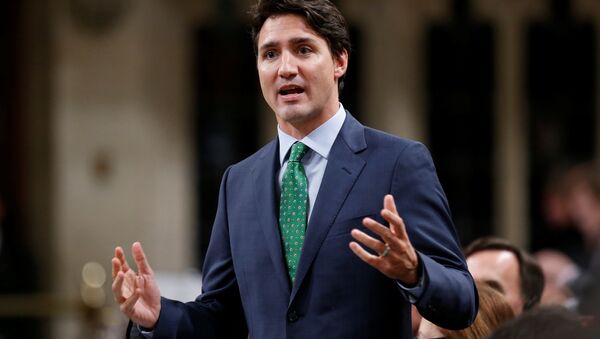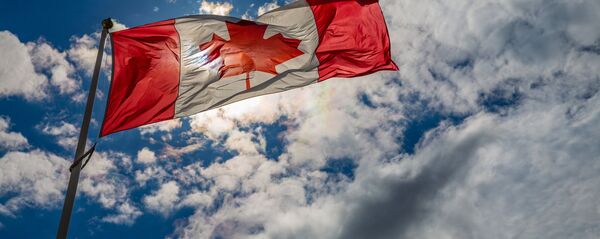Last Friday, the Canadian Foreign Ministry set in motion a series of tit-for-tat retaliations by tweeting it was "gravely concerned" by the arrest of Saudi activist Samar Badawi and other women's rights activists and demanded their release. Samar Badawi is the sister of Raif Badawi, a prominent human rights campaigner who was given 10 years in prison in 2014 by the Saudi government for "insulting Islam," the Guardian noted. His wife and children are naturalized Canadian citizens.
Canada is gravely concerned about additional arrests of civil society and women’s rights activists in #SaudiArabia, including Samar Badawi. We urge the Saudi authorities to immediately release them and all other peaceful #humanrights activists.
— Foreign Policy CAN (@CanadaFP) August 3, 2018
The flames were fanned further on Monday, when Canadian Foreign Minister Chrystia Freeland declared that "Canada will always stand up for human rights in Canada and around the world, and women's rights are human rights," a statement clearly directed at the Saudi monarchy, Al Jazeera reported.
The retaliations by the two governments include expelling each others' diplomats, banning flights by their national airlines between the two countries, withdrawing university students and even banning treatment of their citizens in the other country's hospitals, the Guardian noted.
Christopher Black, an international criminal lawyer who is on the List of Counsel before the ICC and has worked on high profile cases involving war crimes and human rights, told Radio Sputnik's Loud & Clear Wednesday that the origins of the exposed sore spot go back years, to a secret arms deal the Saudis felt cast them in a bad light.
"Why they openly criticized the Saudis, in this way, and demanded the immediate release of these people, which got up the nose of the Saudis, [and Crown Prince Mohammad] bin Salman," the lawyer told hosts John Kiriakou and Brian Becker. "They could've done this by discreet message through the ambassadors or exerted pressure that way, but to do it this openly seems to have really gotten to the Saudis."
"But what's behind it may be friction developing over the last couple of years about the big arms deal that was made between Canada and Saudi Arabia, the $15 billion for selling armored cars to Saudi Arabia. The deal was that it was to be kept secret, but when Trudeau came to power a couple of years ago, details were leaked about what was going on, and then stories about these armored cars being used to attack people in Yemen and crush internal dissent and so on, it caused the Saudis a lot of problems, and really angered them, and they felt they were being betrayed. Canada was taking their money but making them look bad at the same time," Black said.
Black noted that the Saudis had previously recalled their ambassadors from Germany in 2015 and Sweden in 2017 over similar complaints about criticism of their government.
Of course, the retaliation hasn't really had a big economic impact on Canada, Black noted, but is mostly meant as a slap in the face.
The lawyer, who serves as counsel in the ICC in The Hague, noted that the Foreign Ministry may have made the remarks in a public manner to try and mollify the crowd of activists clamoring for human rights in Saudi Arabia and trying to stop futures arms sales, but that seems to have backfired.
The US is keeping out of the dispute, with State Department spokesperson Heather Nauert saying earlier this week: "Both sides need to diplomatically resolve this together. We can't do it for them," Sputnik reported. However, Black noted the Russian government has explicitly come out on the side of the Saudis, indicating the Canadians need to mind their own business.




